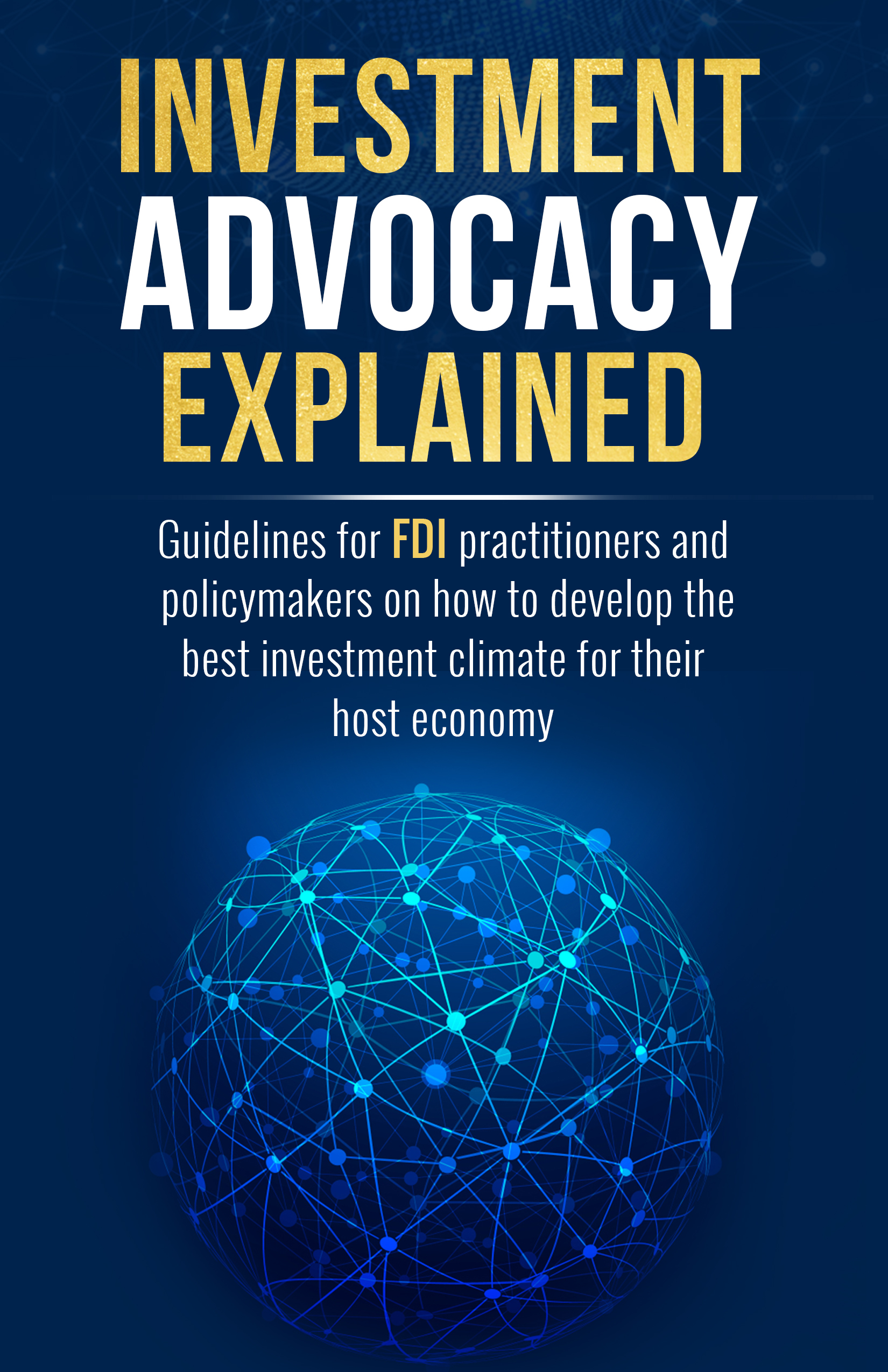Book Overview
Governments across the world are trying to create the most attractive investment climate possible in order to encourage companies to invest, grow and stay in their countries. To do this, they carefully craft the policies, regulations and incentives which they believe create the best possible environment for business growth for both local and international companies. However, governments are complex organisms operating under often complicated rules, processes and norms. In addition, rules regularly need to be adapted, adopted or evolve. This means that for the thousands of public professionals monitoring the investment climate around the world that there will always be one more regulation, rule or practice to change in their country. Moreover, there will be diverse opinions of what to change and how to go about achieving that change. As for the private sector, it has its own objectives and ideas as to what the best conditions should be for their businesses to prosper.

The function that seeks to influence this constantly changing space is advocacy, a discipline as old as politics. Rather than supporting individual companies or industry clusters, advocacy focuses on the conditions, the regulatory and institutional frameworks, and the practicalities, such as processes, forms and other forms of experiencing a regulation, which contribute to the investment climate in which companies operate.
This book will explain how policymaking happens, and thereby help policy advocates, policy stakeholders, companies and any other interested parties be more effective when it comes to shaping the future investment climate of their countries, the rules which define FDI, and how these rules are implemented.
Facts & Quotes
76% percent of IPAs have advocacy as part of their official mandates.
State of Investment Promotion Agencies: Evidence from WAIPA-WBG’s Joint Global Survey. Washington, D.C.: World Bank Group.
“Advocacy is the process of negotiating and mediating a dialogue through which influential networks, opinion leaders, and, ultimately, decision makers take ownership of ideas, evidence, and proposals, and subsequently act upon them.
Centre for Policy Advocacy (ICPA)
“All advocacy is, at its core, an exercise in empathy.” Empathy has power. It unites like-minded individuals who share a common belief and purpose because it means those engaged in the advocacy process understand each other, the challenges they face, and the opportunities that are collectively embraced to elevate something bigger than themselves.
Samantha Power
former U.S. ambassador to the United Nations
“We need advocacy to become mainstream if we are to change the world.”
Carolina Arriagada Peters
“Advocacy is the process of negotiating and mediating a dialogue through which influential networks, opinion leaders, and, ultimately, decision makers take ownership of ideas, evidence, and proposals, and subsequently act upon them.
Centre for Policy Advocacy (ICPA)
“Most advocacy work thrives to achieve one of two goals. On the one side it will seek to improve services and systems and how government serves the public interest for it to be higher-quality, more accessible, affordable, comprehensive, or coordinated. On the other side it will seek to secure optimal “social and physical conditions, which relate to the circumstances and surroundings people and communities live in, focusing on conditions such as poverty, health, air quality, etc.
The Aspen Institute, 2018.

Join the Advocacy community now
Pre-register for our Advocacy bestseller
The worst Advocacy is the one you don’t do. The book provides you with a methodology to improve your Advocacy skills. Everything is ready for you.
Start Learning!
Need to learn now?
We are ready.
Take our online courses!
Explore every step of the advocacy FDI journey and bring the puzzle together in such a way, that you can mobilise each piece to drive impactful advocacy campagigns

